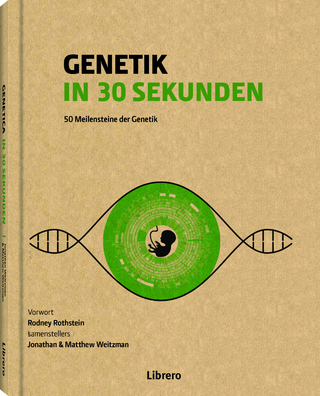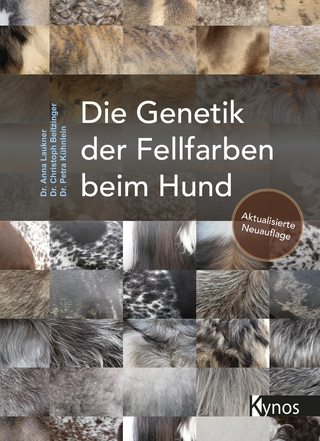
Mycoremediation and Environmental Sustainability
Springer International Publishing (Verlag)
978-3-319-68956-2 (ISBN)
Ram Prasad is Assistant Professor at the Amity Institute of Microbial Technology, Amity University, Uttar Pradesh, India. Dr. Prasad completed his Ph.D. at the Department of Microbiology, Chaudhary Charan Singh University, Meerut, UP, India, in collaboration with School of Life Sciences, Jawaharlal Nehru University (JNU), New Delhi, India. He received his M.Sc. in Life Sciences at JNU and also qualified CSIR-NET, ASRB-NET, and GATE. His research interest includes plant microbe-interactions, sustainable agriculture and microbial nanobiotechnology. Dr. Prasad has ninety five publications to his credit, including research papers & book chapters and five patents issued or pending, and edited or authored several books. Dr. Prasad has eleven years of teaching experience and he has been awarded the Young Scientist Award (2007) and Prof. J.S. Datta Munshi Gold Medal (2009) by the International Society for Ecological Communications; FSAB fellowship (2010) by the Society for Applied Biotechnology; Outstanding Scientist Award (2015) in the field of Microbiology by Venus International Foundation; and the American Cancer Society UICC International Fellowship for Beginning Investigators (USA, 2014). In 2014-2015, Dr. Prasad served as Visiting Assistant Professor in the Department of Mechanical Engineering at Johns Hopkins University, USA.
Preface.- 1. Fungal Bioremediation as a Tool for Polluted Agricultural Soils .- 2. Marine-derived Fungi : Prospective Candidates for Bioremediation.- 3. Biofilm - A Next Generation Biofertilizer.- 4. Fungi- A Remedy to Eliminate Environmental Pollutants.- 5. Mycoremediation: Decolorization Potential of Fungal Ligninolytic Enzymes.- 6. Long-time Corrosion of Metals and Profiles of Fungi on Their Surface in Outdoor Environments in Lithuania.- 7. Mycoremediation: An Eco-friendly Approach for Degradation of Pesticides.- 8. Mycoremediation of Heavy Metal and Hydrocarbon Pollutants by Endophytic Fungi.- 9. Fungal Mediated Solid Waste Management: A Review.- 10. Mycoremediation: A Step Towards Cleaner Environment.- 11. Arbuscular Mycorrhizal Fungi Provide Complementary Characteristics That Improve Plant Tolerance to Drought and Salinity: Date Palm as Model.- 12. Applications of Haloalkaliphilic Fungi in Mycoremediation of Saline-Alkali Soil.
| Erscheinungsdatum | 08.02.2018 |
|---|---|
| Reihe/Serie | Fungal Biology |
| Zusatzinfo | XIII, 240 p. 27 illus., 16 illus. in color. |
| Verlagsort | Cham |
| Sprache | englisch |
| Maße | 155 x 235 mm |
| Gewicht | 549 g |
| Themenwelt | Naturwissenschaften ► Biologie ► Genetik / Molekularbiologie |
| Naturwissenschaften ► Biologie ► Mikrobiologie / Immunologie | |
| Naturwissenschaften ► Biologie ► Mykologie | |
| Schlagworte | Agricultural by-products • biochemistry • Biomedical and Life Sciences • bioremediation • Biotechnology • Botany & plant sciences • Botany & plant sciences • decolorization • Fungi • Genetics (non-medical) • Life sciences: general issues • Mycology • Mycology, fungi (non-medical) • nanotechnology • plant biochemistry • Plant Breeding/Biotechnology • Pollution & threats to the environment • Pollution, general • Pollution & threats to the environment • Sedimentology & pedology • Sedimentology & pedology • Soil Pollution • Soil Science & Conservation • Soil Science & Conservation • Waste |
| ISBN-10 | 3-319-68956-8 / 3319689568 |
| ISBN-13 | 978-3-319-68956-2 / 9783319689562 |
| Zustand | Neuware |
| Haben Sie eine Frage zum Produkt? |
aus dem Bereich


